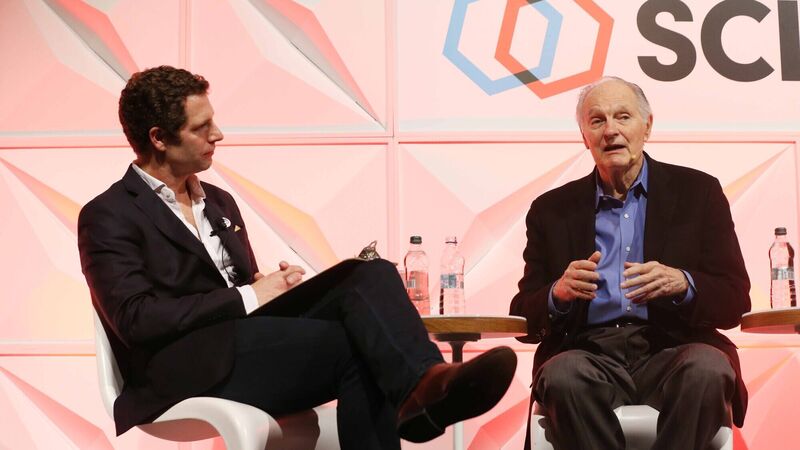Terry Prone: Face to face with the hawk-eye that is Alan Alda

Actor and communications advisor, Alan Alda, right, at the Science Communication Conference in Dublin in 2018. In the 'How to' podcast he talks about how his curiosity about science, combined with his ignorance about it, was his greatest advantage. Picture: RollingNews.ie
When you hope, assuming the Force is with you and God is not agin you, that you might have landed Alan Alda for your podcast, you say nothing until you are dead certain sure. Because a star of his magnitude could get an attack of second thoughts. Or technical problems might arise. But this week, the latest edition of my company’s podcast went up. It’s useful and free to anyone who wants it, so mentioning it here is not a conflict of interest.












